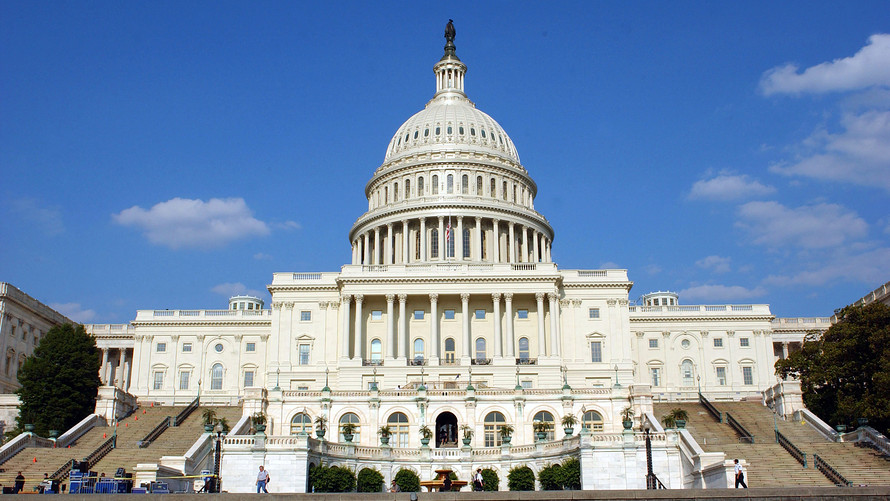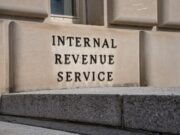PDF of Legislative Brief available here
The IRS recently adopted a pro-First Amendment reform to protect associational privacy. Some members of Congress oppose the reform, and the Senate is likely to vote on a resolution to disapprove the policy in mid-December.
Background
As a result of the IRS’s guidance, most nonprofit groups no longer have to report the private information of their significant donors – their names and home addresses – to the agency on Schedule B of their annual IRS Form 990 returns. Under the policy, 501(c)(3) charities, which receive tax-deductible gifts, are still required to report this information. Other nonprofits are required to keep these records in the event of an audit. Public copies of these returns by all nonprofits will still show the amounts given by each major donor. The new policy, known as Revenue Procedure 2018-38, was announced on July 16, 2018.
This reform became necessary after the law changed in 2015 to clarify that gift taxes don’t apply to donations to nonprofits. Groups across the spectrum, including the Alliance for Justice, American Civil Liberties Union, Americans for Tax Reform, Council for Citizens Against Government Waste, Human Rights Campaign, NAACP National Voter Fund, Tea Party Patriots, and The Conservation Campaign, supported the new law.
After Congress clarified that gift taxes didn’t apply to donations to nonprofits, there was no longer any need for the IRS to collect donor information from these groups. As the Treasury Department explained in its announcement, “The IRS has no tax administration need for continuing the routine collection of donor names and addresses as part of an exempt organization’s annual tax return. If the information is needed for purposes of an examination, the IRS will be able ask the organization for it directly.”
The IRS retained the donor reporting rule for charities only, for two reasons. First, the law requires that charities, which can accept tax-deductible gifts, provide this information to the IRS. Second, the IRS could use this information to check on the deductions claimed by major donors. Donors to groups exempt from the reporting rule can’t deduct their gifts as charitable contributions.
The IRS began developing this new policy during the Obama administration. The agency had serious concerns about the difficulty of keeping the information confidential, as required by law. During a December 2015 Urban Institute conference, then-IRS Exempt Organizations Division Director Tamara Ripperda indicated the agency was considering ending the requirement.
The IRS’s new policy takes effect for tax years ending on or after December 31, 2018. But the Congressional Review Act (CRA) set up a fast-track procedure for Congress to review and reject agency rules. Senators John Tester (D-MT) and Ron Wyden (D-OR) introduced a resolution of disapproval (S. J. Res. 64) in September to nullify the rule. In October, they filed a petition that discharged their resolution from the Senate Finance Committee. The Government Accountability Office recently indicated that this IRS revenue procedure is subject to the CRA. Unlike most legislation, the Senate resolution is not subject to a filibuster or amendment. As a result, the Senate is likely to debate and vote on the resolution in mid-December.
The Importance of the IRS’s Reform
1. Recognizing the Vital Importance of Privacy in Association. In particular, the IRS’s action echoes the importance of the 1958 case, NAACP v. Alabama. In that landmark ruling, the Supreme Court recognized the right of all Americans “to pursue their lawful private interests privately and to associate freely with others in so doing.” When the government compiles a national database of the causes Americans support, the risk of abuse by law enforcement rises. Especially in today’s hyper-polarized political climate, the risk of threats, harassment, and intimidation rises dramatically.
Collection of such confidential information has always been a danger to associational privacy. As the Supreme Court noted in 1976, when the government demands to know “the giving and spending of money,” our freedoms are threatened, “‘for financial transactions can reveal much about a person’s activities, associations, and beliefs.’” It was not for nothing that Richard Nixon and other presidents sought to use the IRS as a way to harass critics and rivals. Keeping this information private will help prevent future IRS employees or presidents from misusing it again.
2. Donor Information is Unnecessary for Enforcing the Tax Laws. Congress gave the IRS wide discretion to determine the information it needs from nonprofit groups. Through regulation, the IRS imposed the donor reporting rule on non-charity nonprofits, not Congress. Federal regulations allow the IRS commissioner to “relieve any … class of organizations … from filing” information when “he determines that such returns are not necessary for the efficient administration of the internal revenue laws.” That’s exactly what happened here. The IRS concluded it no longer needed the information for most nonprofits. Given the privacy concerns, it was costly and unwise to keep demanding it.
3. Confidentiality Risks and Legal Concerns. The mass collection of donor names and addresses was all risk and no reward. The IRS faced legal exposure if it didn’t keep the information it collected confidential, and it wasn’t using the information. Yet it was costly for the IRS to redact the confidential information before making the Form 990 returns public. Despite IRS efforts, confidential information still sometimes leaked. The new policy will allow the IRS to deploy the cost savings to improve tax administration and taxpayer service.
4. Improving Public Confidence in Enforcement of the Tax Laws. Ending collection of this information should help improve public confidence in the agency. The IRS’s reputation took a major hit in 2013 when the Treasury Inspector General for Tax Administration found the “IRS used inappropriate criteria” to target Tea Party and other groups “based upon their names or policy positions” for special scrutiny of their tax-exempt applications.
Conclusion
The IRS’s recently adopted reform is a boon to the First Amendment and to the right to privacy of association. All Americans should be free to support the causes of their choice without fear of harassment or intimidation – including from a powerful government agency with the ability to audit taxpayers. The IRS admits that it neither used nor needed the donor information it collected when enforcing the tax laws. As a result, the IRS’s decision to eliminate this burden for most nonprofits saves the agency from leaking or misusing Americans’ private information while simultaneously improving public confidence in the enforcement of the tax laws.














